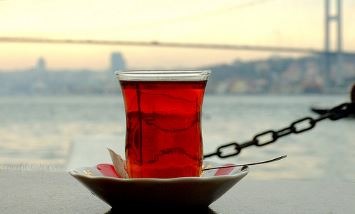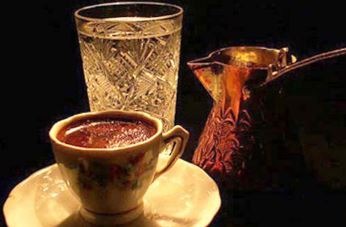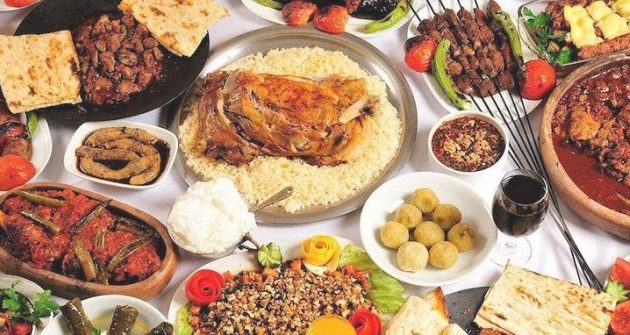During your visit to Istanbul you can not miss out the richness of the Turkish cuisine!
Turkish cuisine is one of the most varied in the world. It is considered as the third richest cuisine after the French and the Chinese gastronomy.
In the West this cuisine does not however have a great recognition. It is often limited to the Döner Kebab!
Turkey is a crossroad between Europe, Asia and the Orient. This unique location combined with the migration of Turks over the centuries from Central Asia to Europe has shaped the identity of its gastronomy. Because six centuries of the Ottoman Empire’s regional domination and the reciprocal influence between Turkey and its neighboring countries (Greece, Bulgaria, The Balkans, Irak, Syria Iran, Armenia …) is the reason why we find so many common dishes in those cuisines such as dolmas, boreks, kebabs, mantis (Turkish ravioli ), and so on.
- The Western and Turkish Aegean cuisine is based on the remnants of the Ottoman court and the Greek ccuisine with a preference for rice over the bulgur. ” The use of spices is less. In this region seafood is abundant and enjoyed in any season.
The main dishes of this region are: dolmas, mezze and seafood

- The cuisine of the Black Sea is heavily based on the products of the sea and finds its influence in the Balkans and Slavic cuisines.
The main dishes of this region are: pides (Turkish pizza), fish, dry beans (kuru fasulye) and cheese.

- Anatolian and South East of Turkey’s Cuisine is known for its kebabs (grilled meat in Turkish), its mezze, spices and desserts including the famous baklava.

Amidst this regional diversity 3 elements are recurrent in a traditional Turkish meal :
- Yogurt : A little of history first, yogurt originates from Central Asia, and would have reach Europe and the Balkans through Turkic peoples. The origin of the word “yoghurt” is also found in the Turkish verb “yoğurmak” meaning “knead”. Turks use yogurt in combination with salty dishes. It is denser and has a touch of acidity. Do not be surprised to find some next to your meat and your vegetables. In supermarkets you will find jars of 1kg or more of yogurt.

- Tea (Çay) : Tea in Turkey is really an institution, it is a sign of hospitality. It is served if you go to people and often offered at the end of a meal. It is a common black tea. It is drunk in a small glass (Çay Bardaği). We drink it any time of the day or even during the evening.

- Turkish coffee (Turk Kahvesi) : This coffee is different from our traditional coffee because the marc is present in the cup. Be careful not not drink it! When you order a Turkish coffee you need to specify its cooking, or rather his sugaring. If you want a coffee without sugar say: sade (“Sadee”), with a little sugar say orta, with many sugar say şekerli (“Chekerli”). Once you’ve finished your coffee you can interpret your futur in the marks of the coffee. Return your cup on the saucer, just wait untill the cup cools and then return the cup, the traces of the marc are indications of your future!

















